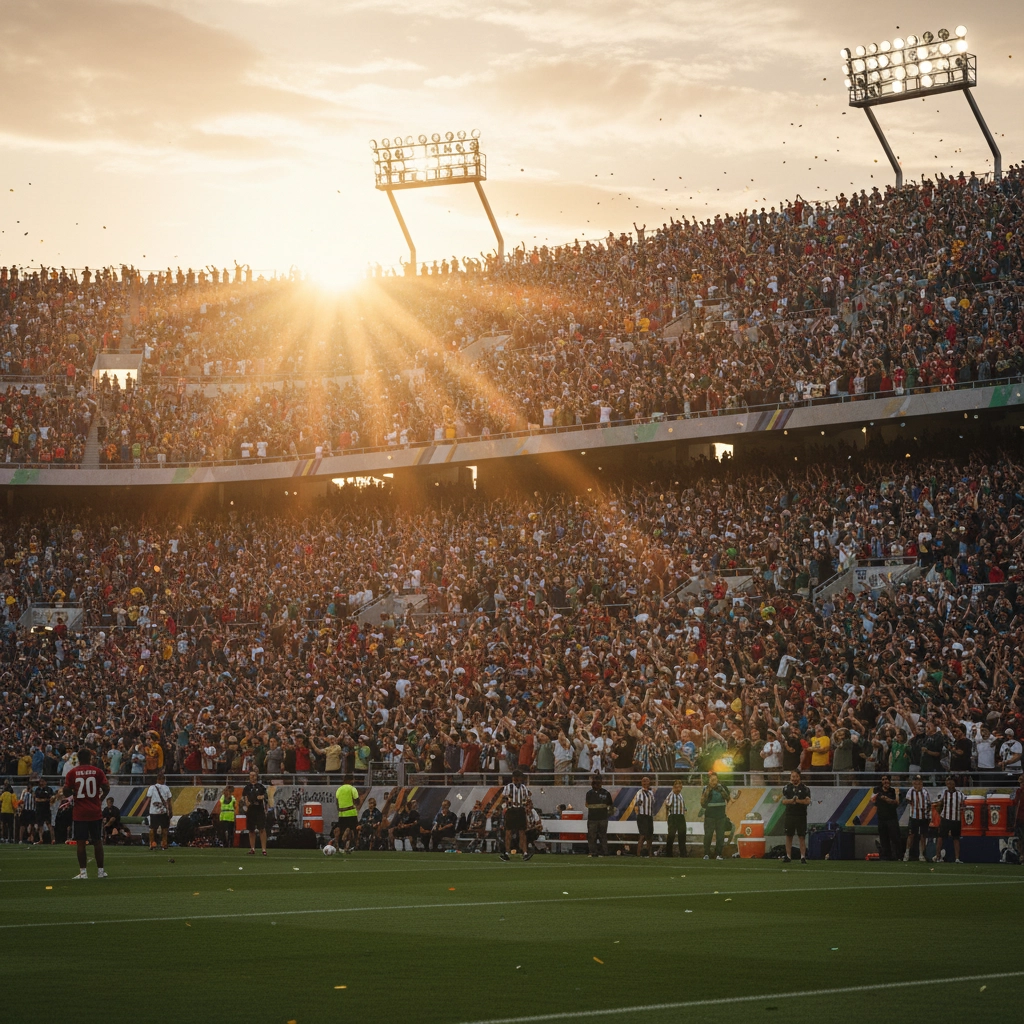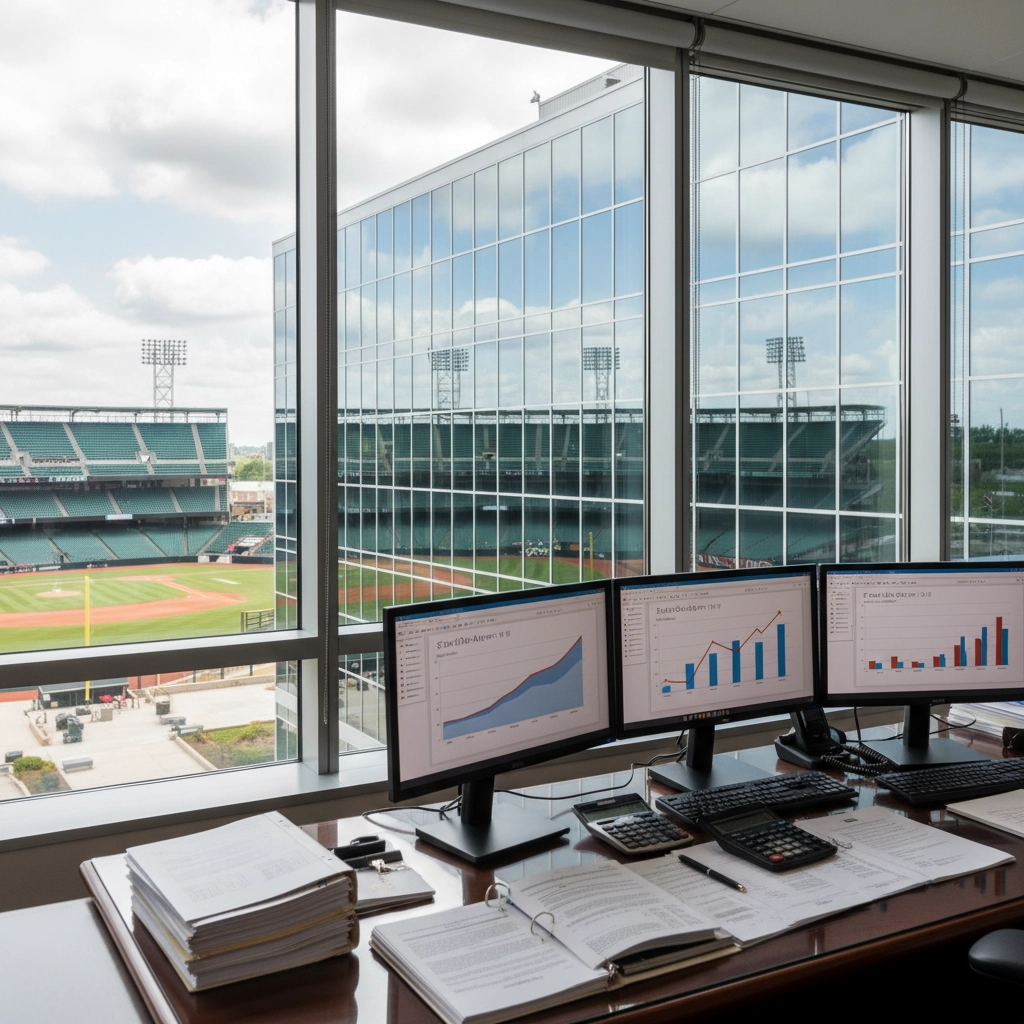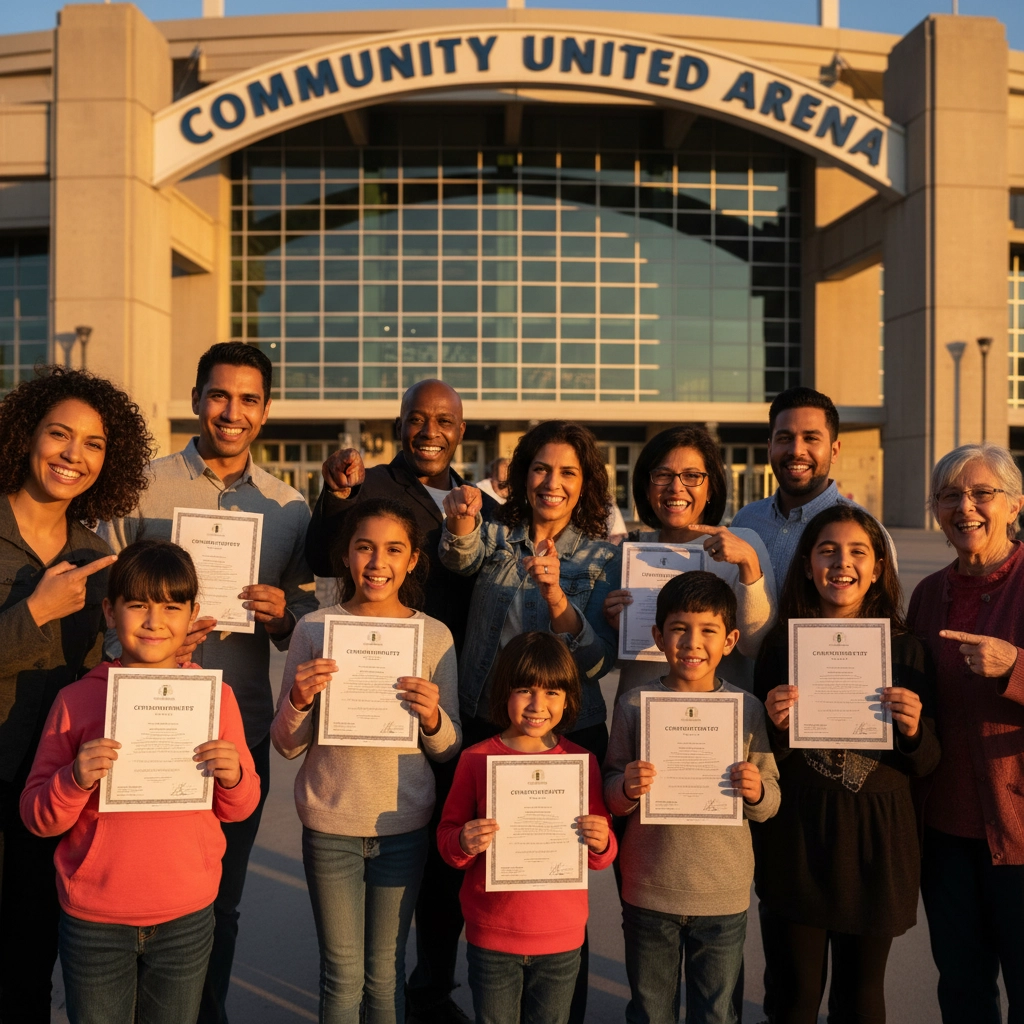United Cities League
- Randyb Dinwiddie
- Nov 7, 2025
- 5 min read
A Revolutionary Vision for American Sports
Politics and sports have always been intertwined, but rarely has a candidate proposed something as bold as Randy Dinwiddie's vision for a community-owned professional sports league, the United Cities League. As part of his 2026 Missouri State Senate campaign, Dinwiddie is challenging everything we know about professional athletics: and offering a solution that could transform how America thinks about sports, community investment, and economic fairness.
The concept is simple yet revolutionary: What if professional sports teams were owned by the cities and fans who support them, rather than billionaire owners? What if every ticket sold and jersey bought directly benefited the community through lower taxes, better roads, and improved education?

The Problem with Traditional Sports Ownership
For decades, American cities have poured taxpayer money into building stadiums for privately-owned teams. Meanwhile, fans spend their hard-earned dollars on tickets, concessions, and merchandise, only to watch the profits flow into the pockets of ultra-wealthy owners and athletes earning tens of millions per year.
This system leaves communities holding the debt while billionaires reap the rewards. Cities struggle to justify stadium investments when schools need funding and infrastructure crumbles. Fans feel disconnected from teams that can relocate at will, leaving loyal supporters behind for better financial deals elsewhere.
Dinwiddie's proposal flips this model entirely. Instead of taxpayers funding stadiums for private profit, communities would own the teams they support: and see direct financial returns from their investment.
How the United Cities League Would Work
Under this innovative framework, participating cities would form their own professional teams across multiple sports: football, baseball, basketball, and more. Each franchise would be jointly owned by the city government and local fans, creating true community ownership.
The financial structure breaks down like this:
Every ticket purchased contributes to a public benefit fund
Concession sales generate revenue for community improvements
Merchandise profits flow back to local taxpayers
Stadium naming rights and sponsorships support municipal budgets
These funds would be earmarked for specific community benefits: lowering property taxes, repairing infrastructure, funding education and trade programs, and providing housing and job training assistance for those in need.

Salary Caps and Financial Fairness
One of the most controversial aspects of modern professional sports is player compensation. While athletes deserve fair pay for their skills and dedication, current salary structures often create massive inequalities that price out average fans and distort team priorities.
The United Cities League would establish reasonable salary caps that ensure:
Fair compensation for players and coaches
Emphasis on teamwork over celebrity status
Ticket prices that remain accessible to working families
More revenue available for community reinvestment
This approach would promote competitive balance while preventing the financial arms race that has made many professional sports financially unsustainable for smaller markets.
Transparency and Accountability
Perhaps the most innovative aspect of the proposal is its built-in oversight structure. A federal central office would oversee all league operations, conducting yearly financial audits and publishing public reports showing exactly how much money was reinvested in each community.
This isn't government control of sports: it's public protection of taxpayer investment. Citizens would have clear visibility into:
How much revenue their team generates
Where that money gets spent in the community
Whether promised benefits are actually delivered
How their team compares to others in financial performance

Open Tryouts and Merit-Based Selection
The United Cities League would also democratize player selection through regional open tryouts held across three-state zones. Any athlete with the skill and commitment could compete for a roster spot, regardless of their college pedigree or connections.
This system would:
Give everyday athletes a fair shot at professional sports
Eliminate backdoor recruiting and politics
Reward pure talent and hard work
Create stronger connections between players and their home communities
Players would initially be responsible for their own expenses until main stadiums are built, at which point they'd receive full support from their local franchise: ensuring only the most committed athletes pursue these opportunities.
Federal Support, Local Control
Stadium construction would be financed through a federally-backed loan program, removing the tax burden from local communities while still providing necessary infrastructure. Repayment would come from ticket sales, attendance revenue, and sponsorship deals: ensuring these facilities pay for themselves.
This approach creates jobs during construction, expands local tourism, and supports small businesses around stadiums without burdening taxpayers. Every dollar spent would have measurable economic impact on the surrounding community.

Fan Ownership and Engagement
To give supporters genuine stake in their teams, up to 5% of each stadium's seating capacity could be sold as financial shares to local fans. These community owners would:
Receive small returns if teams are ever sold
Have voting rights on community projects and youth programs
Get priority access to tickets and special events
Build real ownership beyond emotional investment
This creates a deeper connection between teams and their supporters while providing fans with tangible benefits for their loyalty.
Political Vision Meets Community Need
Dinwiddie's sports league proposal isn't just about athletics: it's a cornerstone of his broader political platform focused on accountability, opportunity, and community ownership. The concept demonstrates how innovative thinking can address multiple challenges simultaneously:
Economic development through sports entertainment
Community reinvestment of public spending
Democratic ownership structures
Transparent government operations
Local job creation and business support
The Campaign Connection
This vision represents what Dinwiddie believes America needs most: systems that work for ordinary people rather than just the wealthy elite. By connecting sports ownership to community benefits, he's proposing a model that could be replicated across multiple industries and sectors.
The United Cities League concept aligns with growing frustration over corporate welfare, taxpayer-funded private profits, and the disconnect between community investment and community benefit. It offers a practical alternative that maintains competitive professional sports while ensuring local economic returns.

A Call for Change
Dinwiddie's proposal challenges voters to reconsider fundamental assumptions about sports ownership and community investment. Why should taxpayers fund stadiums that never pay them back? Why should billionaires own what communities build and support?
The United Cities League represents more than athletic entertainment: it's a model for democratic ownership, community empowerment, and economic fairness. Success would demonstrate that America works best when people control the systems that affect their lives.
For Missouri voters considering their options in 2026, this sports league proposal offers a glimpse into a different kind of political leadership: one that thinks beyond traditional solutions and puts community benefit at the center of public policy.
The question isn't whether this idea is politically feasible: it's whether voters are ready to demand better from their elected officials and their economic systems. Dinwiddie is betting they are.
Ready to learn more about innovative community solutions? Contact Randy Dinwiddie at (314) 580-3455 or visit Amerishop.biz to explore how dependable leadership can transform your community.
Article by Ghost Writer for Amerishop Services








































Comments